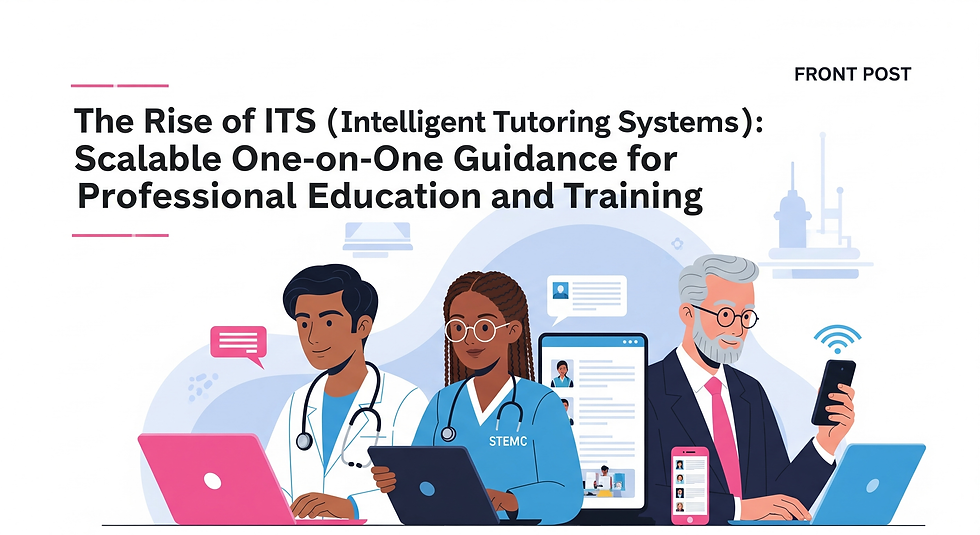Micro-Credentials vs. Mastery: Are We Trading Depth for Speed?
- QuickA

- Jun 20
- 2 min read

In today's knowledge economy, the pace of change is brutal. White-collar professionals are under mounting pressure to adapt, retrain, and evolve. Traditional degrees, while still valuable, are no longer the sole gatekeepers of career progression. Enter: micro-credentials.
Once viewed as lightweight add-ons, micro-credentials are fast becoming a cornerstone of modern career development. Short, sharp, and laser-focused, these digital badges offer something today’s dynamic workforce desperately needs. Speed, agility, and relevance. But are we sacrificing the depth and rigour of mastery for this accelerated approach?
The Case for Agility: What the Data Says
According to the World Economic Forum, 39% of core skills for today’s workers will change by 2030. IBM goes further: technical skills now have a half-life of just 2.5 years. The "learn once, work forever" model is extinct. Micro-credentials meet this new reality head-on by offering "just-in-time" learning at a fraction of the time and cost of traditional education.
And it's not just hype. Harvard Extension School’s microcertificates in AI, project management, sustainability, and cybersecurity are real-world examples of this trend in action. These aren’t fluff. They’re focused, applicable, and increasingly recognised by employers.
Not a Shortcut. A Complement
Critics argue that micro-credentials lack breadth or critical thinking. But it’s a false dichotomy. Micro-credentials aren’t replacements for degrees; they’re supplements. They fill precise gaps. They sharpen the edge of broad knowledge.
Think of it this way: traditional degrees are "just-in-case" - offering holistic foundations for uncertain futures. Micro-credentials are "just-in-time" - providing the missing puzzle piece when that future arrives.
And they’re stackable. A micro-credential in AI in Marketing today might lead to a full digital strategy certification tomorrow. This cumulative model supports lifelong learning and agile career progression.
The Employer Shift: Skills Over Degrees
More and more companies are moving toward skills-based hiring. According to TestGorilla and Forbes, employers now prioritise demonstrated competencies over university prestige. Micro-credentials offer something traditional degrees often can't: immediate proof of relevant, applied skill.
They’re also reshaping internal talent strategies. Employers are building in-house credential systems to reskill their teams fast, and organisations like Digital Promise are setting the standards to ensure these new forms of learning maintain credibility.
Are We Trading Depth for Speed?
No. We’re upgrading. Micro-credentials aren’t about doing less; they’re about doing what matters most, faster. In an era of AI, automation, and constant change, the ability to upskill rapidly is itself a form of mastery.
And let’s be clear: the future belongs to the professionals who can learn, unlearn, and relearn quickly. Micro-credentials make that future possible.
Sources include: World Economic Forum, Harvard Extension School, Digital Promise, IBM, SUNY, Renaissance Learning, TestGorilla, Forbes, MDPI, LearnWork Ecosystem Library, Education Strategy Group, NEA.org, and more.




Comments